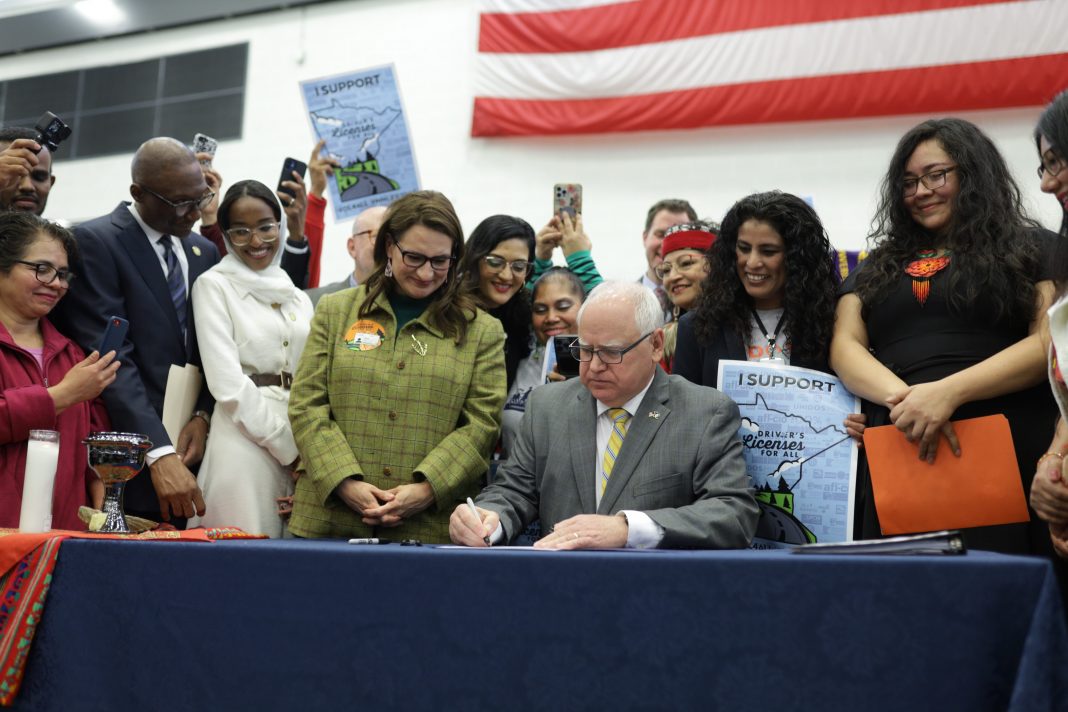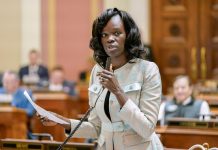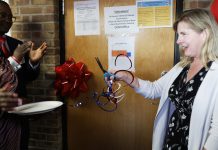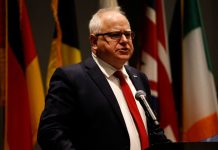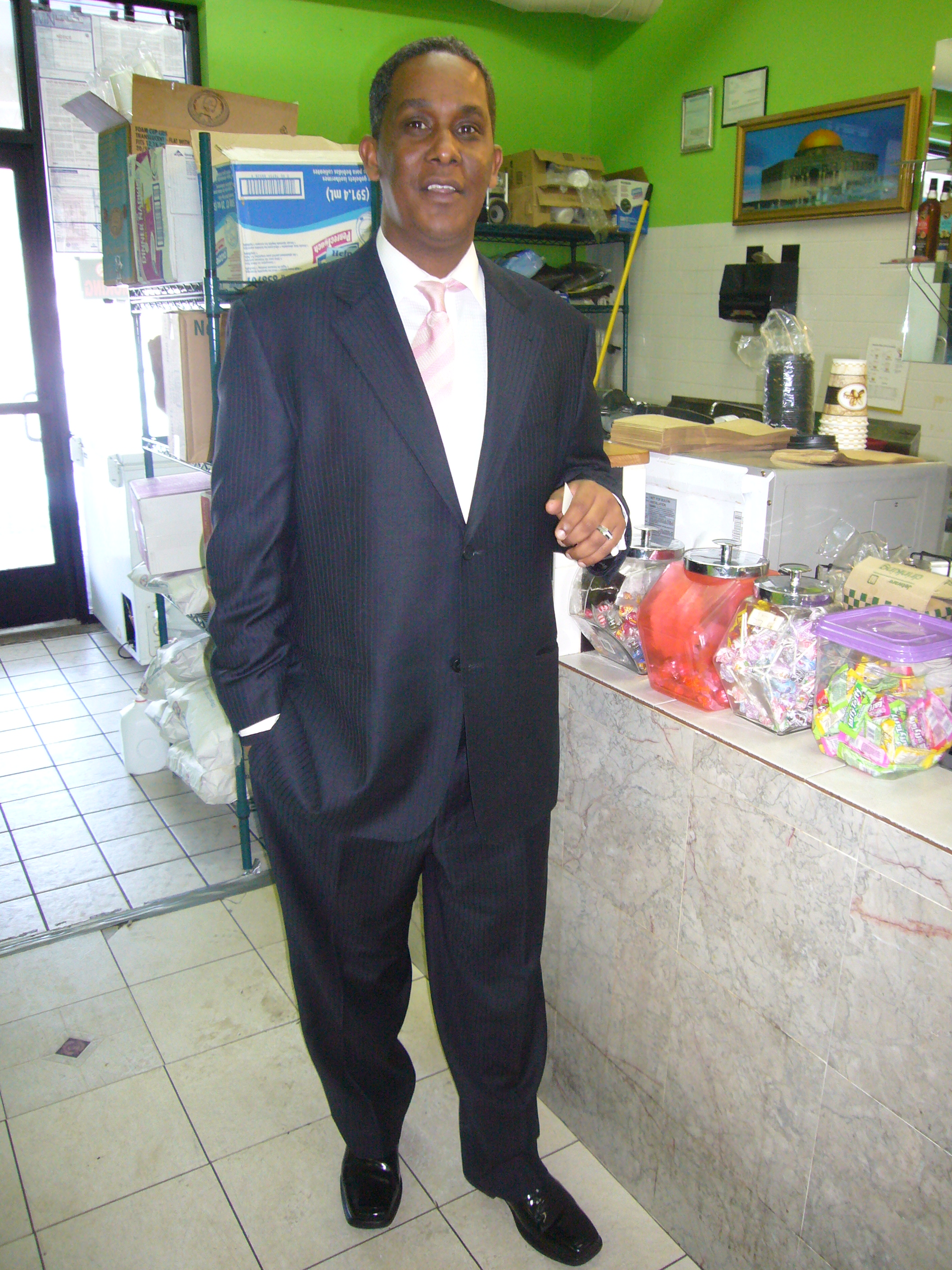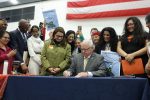
For the first time in nearly 20 years, undocumented immigrants in Minnesota will be able to obtain state-issued driver’s licenses.
Community leaders and elected officials joined Gov. Tim Walz in the signing of the Driver’s License for All bill on Tuesday. Walz called the bill, which was spearheaded by grassroots Latino organizations and carried into state legislature with the support of Democratic Farmer Labor Party (DFL) senate and house members, a step toward stability for Minnesota’s immigrants.
“To the folks that want to call Minnesota home and want to be here, we welcome them, we want them here, and we want to make that process easier,” Walz said.
The new law removes restrictions former governor Tim Pawlenty, a Republican, put in place in 2003 to end legislation allowing undocumented immigrants to get driver’s licenses, according to public policy research organization American Experiment. The following years would prove to be challenging for undocumented immigrants in the state as they struggled to get to work, facing either the risk of driving without a license, or being at the mercy of a public transportation system crippled by poor management.
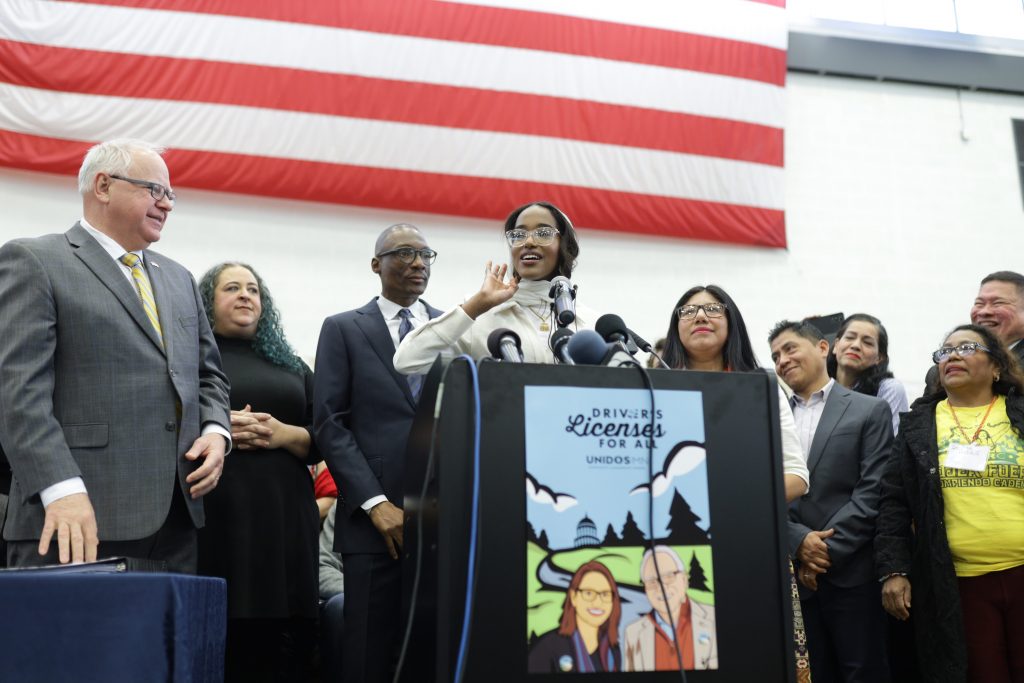
But this would not have been possible without the success Democrats had in Minnesota elections last year. The DFL retained its majority in the House of Representatives, flipped control of the Senate from Republicans, and got Walz re-elected, achieving what is called a “trifecta.”
A fact sheet produced by the Immigrant Law Center of Minnesota in January showed that there are several benefits of implementing Driver’s License for All policies, including increased enrollment in auto insurance policies, and safer roads as more people take driving tests. Many at the bill signing were emotional as they realized that their reality had changed overnight.
In 2019, Migration Policy Institute estimated that there were about 81,000 undocumented immigrants living in Minnesota, 58% of whom originate from Mexico and Central America. Although community organizations of people of Latin America origin largely led the Driver’s License for All movement, the new law will equally serve immigrants from all over the world.
Jovita Morales, founder and lead organizer of the Minnesota Immigrant Movement was instrumental in the bill’s creation. She started working on the bill’s proposal in 2008, during her time as a member of Mujeres en Liderazgo, a local Latina rights coalition. Morales spoke about what drove her to become an organizer for the bill, saying that she wanted to empower her community. As someone who will be positively affected by the passing of the bill herself, Morales expressed joyous relief seeing the fruits of her labor pay off.
“After almost two decades of protests, sit ins, and hunger strikes, we can now breathe a little bit,” Morales said.
Newly elected state Sen. Zaynab Mohamed said that while she felt honored to have been able to be one of the co-authors of the bill, its passing was owed to the everyday people who organized and protested over the years. She said that she wished to see all immigrants arrive in the United States and live their lives with dignity.
“To all the people who felt like their voices weren’t heard, we hear you and we see you,” Mohamed said. “
State Rep. Maria Isa Pérez-Vega of District 65B recounted her time as a high schooler, when undocumented immigrants had their rights to drive stripped away. She said that while her family is documented, she fought tirelessly for the rights of those who do not share that luxury. She acknowledged the work that has been done across all of Minnesota leading up to the day.
“It’s been a dedication of organizing and moving this forward together not just in St. Paul and not just in Minneapolis, but in this entire state,” she said.
Newly elected state Rep. Aisha Gomez, who was the co-chief author of the bill in the House, gave special recognition to community organizers who worked to ensure passage of the bill into law. She dedicated the victory to the tens of thousands of people across the state who never gave up and never lost hope. Change, she said, starts with the people on the ground.
“We’re here today and there are cameras, press, elected officials, and organizational leaders here, and we might think that this is where the power is, in this room” Gomez said. “But any power that we have has come from the people.”
About Panashe Matemba-Mutasa, Mshale Reporter
Panashe is a general assignments reporter. She is a graduate of the University of Minnesota and a UC Berkeley Graduate School of Journalism Class of 2025.

